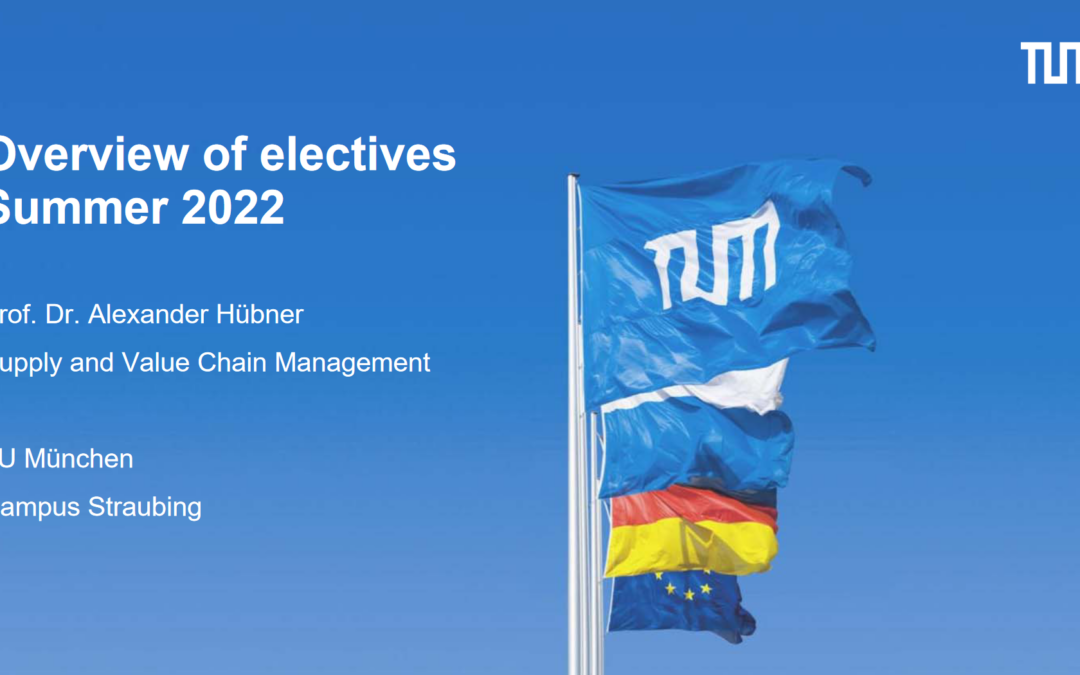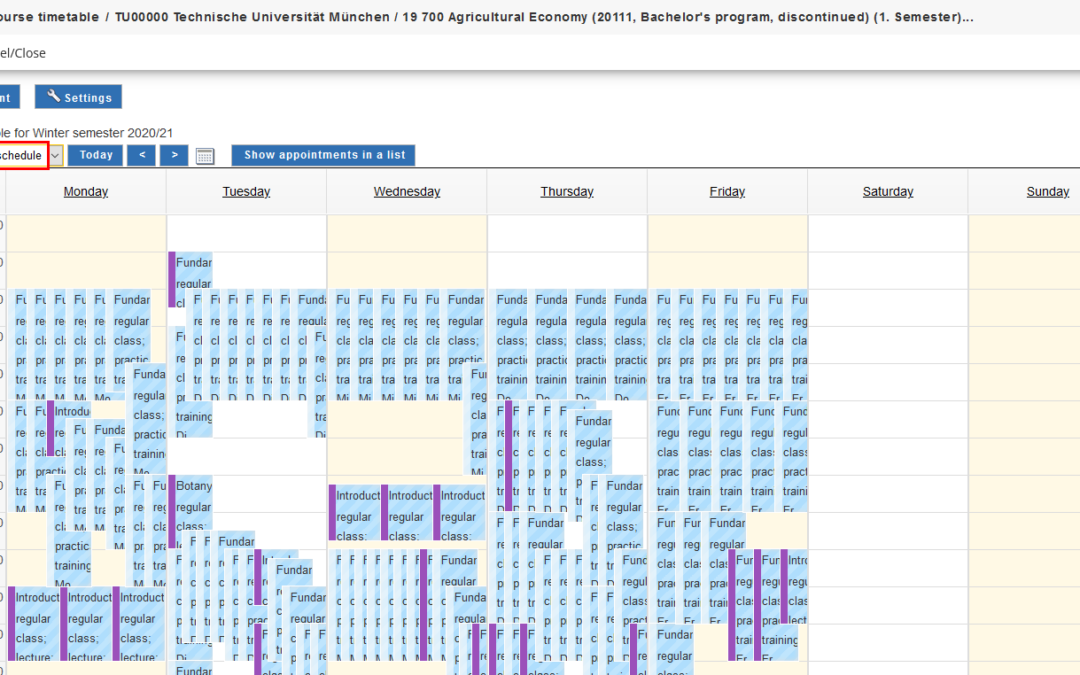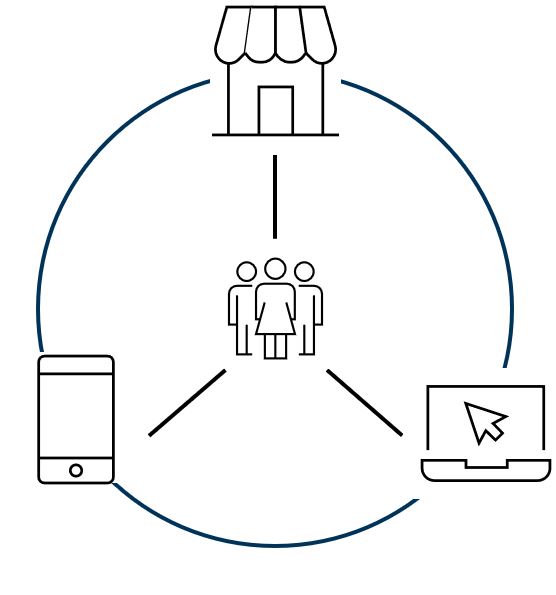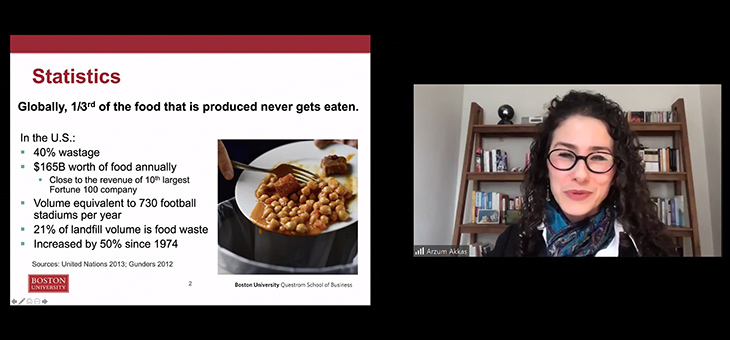
Overview of Electives at the Chair of Supply and Value Chain Management in Summer 2022
The chair of Supply and Value Chain Management is offering a number of electives for Bachelor as well as Master students in this years’ summer term.

The chair of Supply and Value Chain Management is offering a number of electives for Bachelor as well as Master students in this years’ summer term.
The chair of Supply and Value Chain Management is organizing a digital workshop on food supply chain management on Friday, April-22 10am – 2pm. After the workshop, the companies will offer some career service and will explain job opportunities.

Creating good course timetables at a university is a challenging combinatorial optimization problem that has received considerable interest in the optimization and operations research literature (cf. [1]). In principle, the tasks consists of assigning weekly lectures to time slots and rooms while respecting a number of hard constraints. For instance, a lecturer can teach at most one lecture at a time, no two lectures can take place in the same room at the same time and no two lectures of the same curriculum must be scheduled in parallel.
In recent years, the retail food industry’s handling of excess inventory has increasingly come into the spotlight of society, activists, and politics. The economic pressure of unsold products, the environmental impact of wasted resources, and the ethical questions arising from discarding edible food are an ongoing dilemma for grocery retailers, who constantly face a trade-off between increasing attractiveness via high availability on the one hand, and the environmental, social, and financial impacts of overstocks on the other. One common practice in dealing with overstock is mainly being reactive to mitigate the impact, using initiatives such as price promotions or donations.

Our latest #research on #assortmentoptimization in #omni-channel retailing will be published by the European Journal of Operational Research (VHB-Rating: A). Our approach shows the profit potential of cross-channel demand through #clickandcollect while still emphasizing the opportunities for in-channel demand substitutions.
Thanks to the authors @JonasHense and Alexander Hübner

The purpose of the EURO Working Group on Retail Operations is to advance the development and application of Operational Research (OR) methods, techniques, and tools in the field of Retail Operations. The second digital meeting of the EWG Retail Ops took place on March 26, 2021, with almost 60 participants, from the USA, Asia and Europe, and was organized by Sandra Transchel and Prof. Alexander Huebner.